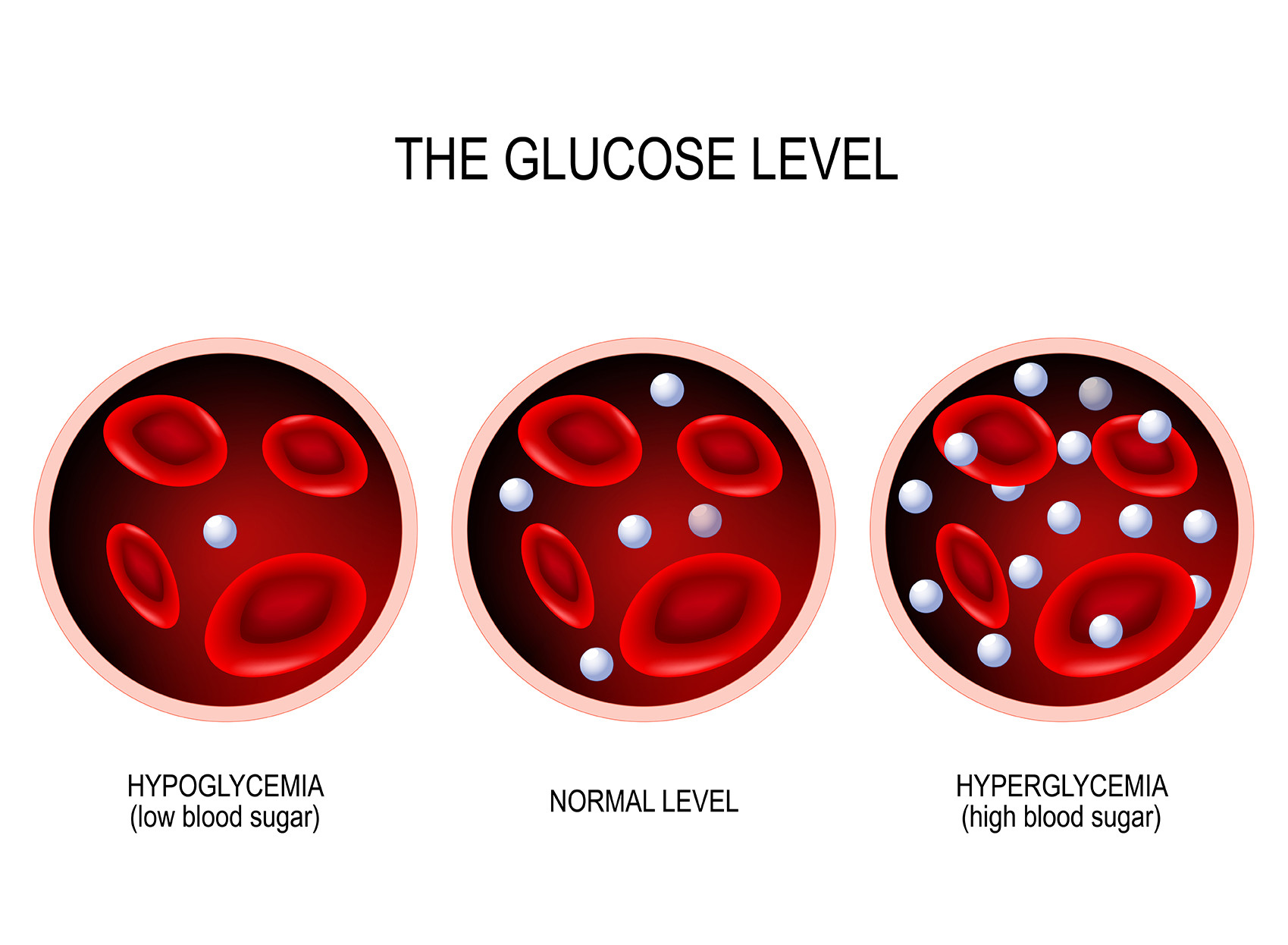What is hyperglycemia?
In very simple words, hyperglycemia is the medical term for high blood glucose (blood sugar). This happens when the body either has too little insulin or when can’t use insulin properly to turn glucose into energy. This means, there’s an excessive amount of sugar circulating in the blood plasma.
Let’s simplify hyperglycemia further. Each cell in a human body needs glucose for energy. Glucose is produced through various metabolic processes in the body, and is supplied to the cells through blood. Insulin, a hormone, makes your cells absorb glucose from the blood. When you have too little insulin or non-functional insulin, the cells cannot get enough energy for their normal functions. Due to lack of energy, liver starts producing more glucose, which the body cannot utilize. Eventually, the glucose concentrations become too high in your blood and altogether this condition is known as hyperglycemia.
SIGNS AND SYMPTOMS OF HYPERGLYCEMIA
Be alert for hyperglycemia symptoms in the following cases:
Diabetic Ketoacidosis
Occurs as a result of a shortage of insulin; in response to which the body switches to burning fatty acids and producing acidic ketone bodies that cause most of the hyperglycemia symptoms and complications. They are:
- Frequent urination
- Frequent thirst
- Frequent hunger
- Fatigue
- Weight loss
- Shortness of breath
- Nausea and vomiting
- Skin rashes
Hyperglycaemic Hyperosmolar Syndrome
This is a complication of diabetes which involves extremely high blood sugar levels without the presence of ketones (waste products of fat breakdown). The symptoms are:
- Frequent urination and thirst with decreasing consciousness
- General weakness
- Visual disturbances
- Cramps
- If severe – lethargy, confusion, weakness on one side of body, seizures
CAUSES OF HYPERGLYCEMIA
So why do the above mentioned conditions happen? Here’s a list of hyperglycemia causes for each condition:
Diabetic Ketoacidosis – Can occur due to:
- Insulin deficiency
- Certain medications or drugs (Antipsychotics, cocaine, alcohol, corticosteroids)
- Serious infections
- New-onset of diabetes
- Other physiologic stressors like trauma, cardiovascular or other emergencies
- Hyperglycaemic Hyperosmolar Syndrome – can be due to
- Coexisting diseases such as:
- Vascular events – heart attack, stroke, blood clot in the vein draining blood from the intestines, blood clot in the lung
- Increased steroidal hormone production in body
- Others – Hyperthermia (elevated body temperature), hypothermia (low body temperature), Pancreatitis (inflamed Pancreas)
- Renal failure, severe burns, thyrotoxicosis (hyperthyroidism)
- Infection, commonly urinary tract infection and pneumonia
- Some medications like:
- Anti-hypertensive medications – calcium channel blockers, diuretics
- Antipsychotic drugs
- Others – glucocorticoids, cancer drugs
- Alcohol
- Noncompliance with diabetic therapy
- Undiagnosed diabetes
HYPERGLYCEMIA MANAGEMENT
Hyperglycemia management is entirely dependent on the will of the diabetic. With proper guidance and support, hyperglycemia management is easy to make a part of your daily routine. Let’s understand more about hyperglycemia management.
Management
Can you control hyperglycemia? Of course you can. Is hyperglycemia management very difficult? No, not at all. It takes some getting used to initially but if you’re transparent with your doctor and are dedicatedly following his regime, you can be in good shape. Here are some tips to bear in mind when it comes to hyperglycemia management.
- Stay informed and educated about diabetes. Take all the help you can from your doctors. Remember, it’s okay to ask questions.
- You must adhere to the therapy prescribed by your doctor. Missing out insulin or anti diabetics, or even seemingly minute activities, may prove to worsen your condition
- Your insulin dosage adjustment is based on your blood sugar, diet, activeness, other diseases and other factors. Speak to your doctor to ascertain the levels you’re injecting.
- If you’re stressed or have suffered from an illness, get your urine ketones checked for sure. Also, you may need more insulin but remember to check that with your diabetes specialist.
- Maintain healthy and transparent communication with your diabetes specialist regarding your therapy
- Consult a doctor/healthcare centre immediately if you cannot hold down fluids or if your sugar levels or urine ketones are very high
Treatment of hyperglycemia
If ever a patient is suspected for acute hyperglycaemic episodes, immediate hospitalization is a must and the following treatment should be commenced ASAP:
- Fluid replacement
- Managing electrolyte imbalance
- Hyperglycaemia and treating underlying cause
- Frequent monitoring for cardiovascular, lung, kidney, and nervous system functioning











